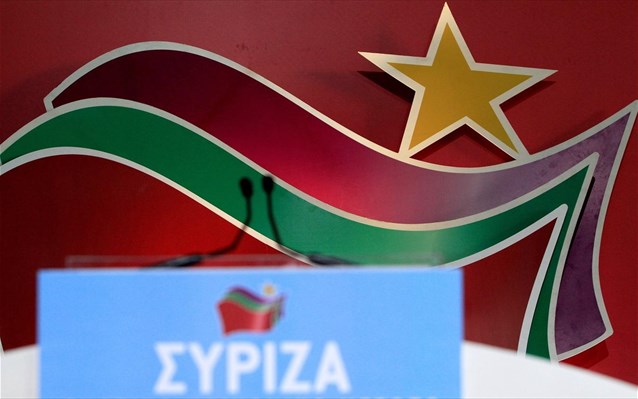Collage: Ethnos
SYRIZA is the leading political force in Greece as shown by a poll conducted in early September by Public Issue and funded by Skai TV. The so-called party of civil servants, which is violently struggling to maintain the status quo of the 1990s, is the preference of 29% of respondents. The party in power, namely New Democracy, is preferred by 28% of respondents whereas the neo-Nazi Golden Dawn firmly ranks as the third political force with 13% of respondents’ votes.
The coalition partner in Antonis Samaras’ government and a long-standing leader in politics, the socialist party PASOK, would have obtained 7% of the votes if there were elections today. The Communist Party of Greece ranks fifth with 6.5% of the votes, followed by Independent Greeks with 5.5% and the democratic left party DIMAR which is on the edge of the threshold with 2.5% of the votes. DIMAR was part of the government coalition but it had left it as a sign of disagreement with the policy of dismissal of civil servants.
35% of respondents believe that Antonis Samaras is the most suitable for Greece’s Prime Minister and 31% believe that Alexis Tsipras is the most appropriate for this position. A comparison with the results of the poll conducted in June shows that the popularity of Samaras has fallen whereas that of Tsipras has not changed. According to 28% of respondents the coalition between New Democracy and PASOK forms the best government whereas 23% believe that a possible government of SYRIZA would be the best. 45% of respondents state that neither of the two is good.

Regarding the popularity of political parties, SYRIZA is the leader again with 39% of approval, followed by the nationalist Independent Greeks with 35%, New Democracy and DIMAR with 30%, PASOK 19% and Golden Dawn 15%. The most popular politician is still Prime Minister Antonis Samaras with 37%, followed by Alexis Tsipras with a difference of one percentage point and by Fotis Kouvelis with 33%, Panos Kamenos 31%, Dimitris Koutsoubas 22%, Evangelos Venizelos 21% and Nikos Mihaloliakos with 15%.
When asked if they want early elections, 60% of respondents reply negatively and 57% say that there will be early elections regardless of whether they want them or not. 74% of respondents believe that Greece is moving in the wrong direction and 48% think that the international prestige of the country has been severely impaired. As to the domestic situation, 81% of respondents expect a wave of strikes and protests in the coming months, 72% admit that their life is going through a difficult phase and 54% fear an increase in the prices of essential goods.
 The negative attitude towards the supervisory Troika and its financial and economic policy is intensifying, as 76% of respondents oppose the Memorandum of financial support whereas this rate was 68% in May. The attitude of the majority of Greeks, 55%, towards the European Union is negative; the approval for the euro has also fallen to 51% whereas it was 67% a year ago. As for Syria and a possible military operation there, the Greeks are more than firm, as 68% of respondents have a negative or rather negative attitude towards Syrian President Bashar al-Assad and, at the same time, 72% do not want a military operation in Syria; 78% of respondents are against Greece’s involvement in a military operation against Syria.
The negative attitude towards the supervisory Troika and its financial and economic policy is intensifying, as 76% of respondents oppose the Memorandum of financial support whereas this rate was 68% in May. The attitude of the majority of Greeks, 55%, towards the European Union is negative; the approval for the euro has also fallen to 51% whereas it was 67% a year ago. As for Syria and a possible military operation there, the Greeks are more than firm, as 68% of respondents have a negative or rather negative attitude towards Syrian President Bashar al-Assad and, at the same time, 72% do not want a military operation in Syria; 78% of respondents are against Greece’s involvement in a military operation against Syria.